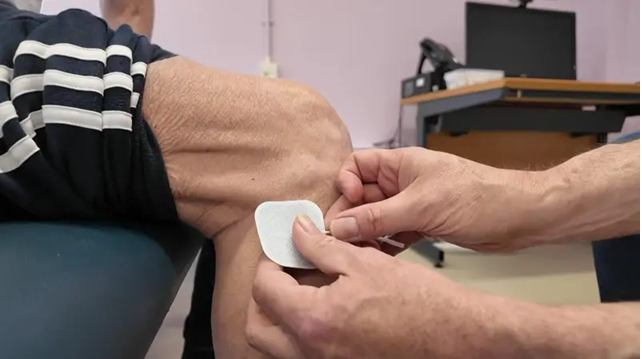Do you often have night-time leg cramps, or restless legs syndrome? If so, you might be deficient in a very important mineral – magnesium.
Recent research has suggested that people living with Parkinson’s are often deficient in magnesium, which may have a protective role to play in regard to neurological diseases in general.
Magnesium is a mineral involved in hundreds of processes throughout our bodies. It belongs to the electrolyte family, which affects functions such as muscle movement.
It can be difficult to pin down magnesium deficiency and – as blood tests aren’t always reliable – it’s important to be aware of symptoms, as they may be the best indicators of deficiency.
The symptoms of magnesium deficiency include insomnia, fatigue, and weakness; muscle cramps, spasms, and twitches; restless legs syndrome; confusion, irritability, anxiety, and depression; a loss of appetite; and difficulty breathing.
Confusingly, these symptoms can be caused by a range of other factors that are not to do with magnesium. However, since magnesium deficiency is widespread in Parkinson’s, you should talk to your doctor if you experience some of these.
What does magnesium do?
Magnesium is needed for energy production, to convert vitamin D to its active form, to control blood glucose, and to regulate blood pressure, among hundreds of other important tasks.
Perhaps most significantly for people living with Parkinson’s, it plays an especially important role in muscle function. When there is a magnesium deficiency, the muscle isn’t able to relax as easily, causing cramping or spasms.
In extreme cases it can lead to tetany – a severe contraction of the muscles, usually in the hands or feet but sometimes in the oesophagus or larynx (voice box). It can even affect lung function, making it more difficult to breathe.
The best insurance is to eat foods rich in magnesium – it is usually better absorbed from food than from supplements. These include nuts such as almonds, cashews and peanuts, fruit and vegetables like spinach, avocado, potatoes, and bananas, as well as cereals and pulses.
If you think you might need supplements of magnesium, you should discuss this with your doctor, as there are some conditions that need care when it comes to magnesium supplements. Kidney disease, diabetes, slow heart rate, bowel obstruction, and myasthenia gravis are examples. Also, magnesium supplements can interact unfavourably with some medications.
If your doctor agrees that magnesium supplements are a good idea, they will indicate how much you should be taking.
Magnesium is among the minerals most vital to human health, but it’s also one of the most neglected. Take a few moments to consider whether you’re getting enough of this important nutrient, or whether it might be a good idea to talk with your doctor about supplements.
Here are some examples of foods rich in magnesium.
Source
Kathrynne Holden, former National Parkinson Foundation dietician (UK)









